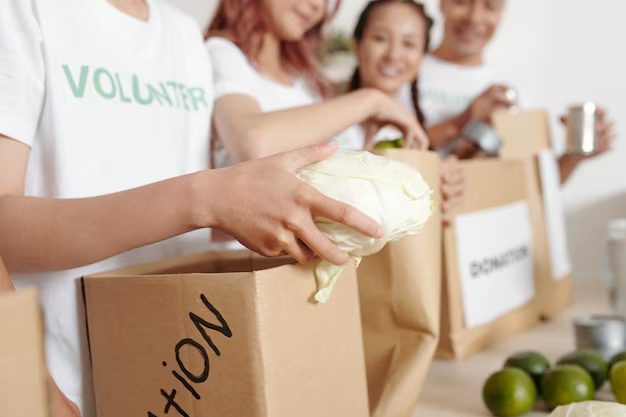Finding a Food Bank Open Today: Your Comprehensive Guide
In times of need, whether due to unexpected financial challenges or broader economic pressures, the availability of food banks provides a vital service. If you're asking, "Are there any food banks open today?" you’re not alone. Understanding how food banks operate, where to find them, and when they’re open can help ensure you're not left without critical support when you need it most.
Understanding Food Banks: A Community Lifeline
Food banks play a crucial role in supporting individuals and families who are experiencing food insecurity. They act as distribution centers where donated or surplus food is collected, stored, and then supplied to those in need. Often, food banks work in collaboration with local charities, religious organizations, and even government programs to maximize their reach and impact.
Why Food Banks Are Important
- Immediate Food Relief: They provide essential food items to help bridge the gap for those struggling to afford groceries.
- Community Support: They foster a sense of community, offering not just food, but sometimes additional support services.
- Flexibility and Inclusion: Many food banks accommodate dietary restrictions, understanding that nutritional needs can vary widely among individuals and families.
Finding a Food Bank Open Today
The schedule of food banks can vary significantly depending on location, volunteer availability, and supply levels. Here are some key tips and considerations when searching for one:
Check Local Resources
Community Websites & Social Media: Local government and community organization websites often list operating hours and locations of nearby food banks. Following local social media groups can also provide up-to-date information.
Public Libraries & Community Centers: These can be excellent sources of information about local resources, including food banks. Staff can direct you to relevant flyers, notices, or online resources.
Call Ahead
Before heading to a food bank, it's a good idea to call ahead. This can confirm their current hours of operation, supply availability, and any eligibility criteria or documentation required.
Use Online Tools
There are online databases and services dedicated to helping you find open food banks, such as:
- Food Bank Locators: Websites that allow you to enter your zip code or city to find nearby food bank options.
- Nationwide Initiatives: Some larger organizations offer searchable directories of food assistance programs across the country.
Operating Hours and Distribution Models
Variable Schedules
Food banks may operate with different schedules; some might be open daily, while others might have limited hours on specific days of the week. Factors affecting their schedules include:
- Volunteer Availability: Food banks often rely on community volunteers, which can impact hours of operation.
- Supply Chain: Delivery times for food donations can also affect opening hours.
- Community Needs: High-demand periods may prompt food banks to extend hours temporarily.
Types of Distribution Models
- Walk-in/On-site Distribution: Individuals visit the food bank during open hours to receive food directly.
- Delivery Services: Some food banks offer delivery services for those unable to travel to the location.
- Mobile Pantries: These operate from trucks or vans, bringing food directly to various community sites.
Related Food Assistance Programs
Beyond food banks, there are several other programs designed to support food security:
SNAP (Supplemental Nutrition Assistance Program)
While food banks provide emergency assistance, SNAP offers ongoing support for eligible individuals and families by supplementing their food budgets.
School Meal Programs
For families with school-aged children, school meal programs are crucial, ensuring access to nutritious food during the school year and sometimes beyond.
Community Kitchens
Some areas offer community kitchens where meals are prepared and served at no cost or for a small fee, fostering community and nourishment.
Challenges Facing Food Banks
Supply and Demand Imbalance
Many food banks face challenges in meeting rising demand, often outpacing available resources or volunteer capacity.
Donations and Funding
Food banks rely heavily on donations and often engage in fundraising to maintain operations. Economic downturns can strain these resources.
Volunteer Management
Coordinating volunteers effectively is crucial, yet challenging, especially when unexpected changes happen, such as during public holidays or emergencies.
How You Can Help
While accessing food banks is vital, supporting them can ensure they continue their valuable work:
- Volunteering: Offer your time at local food banks to help with sorting, distribution, or administrative tasks.
- Donations: Consider donating non-perishable food items or financial resources.
- Awareness and Advocacy: Raise awareness in your community about the challenges and needs of local food banks.
🔍 Quick Tips For Finding Food Banks Open Today
- 📞 Call First: Confirm hours before leaving home.
- 🌐 Check Online Tools: Use locators to find nearest options.
- 📅 Look for Unconventional Hours: Some may open late or on weekends.
- 📋 Prepare Documentation: Ensure you have necessary info ready.
- 📱 Social Media & Local News: Follow for announcements of hours and services.
Navigating food insecurity is challenging, but being informed about the resources and support systems available can make a significant difference. Whether you're seeking assistance or looking to offer support, understanding food banks' operations and needs empowers communities to thrive collectively.

Related Topics
